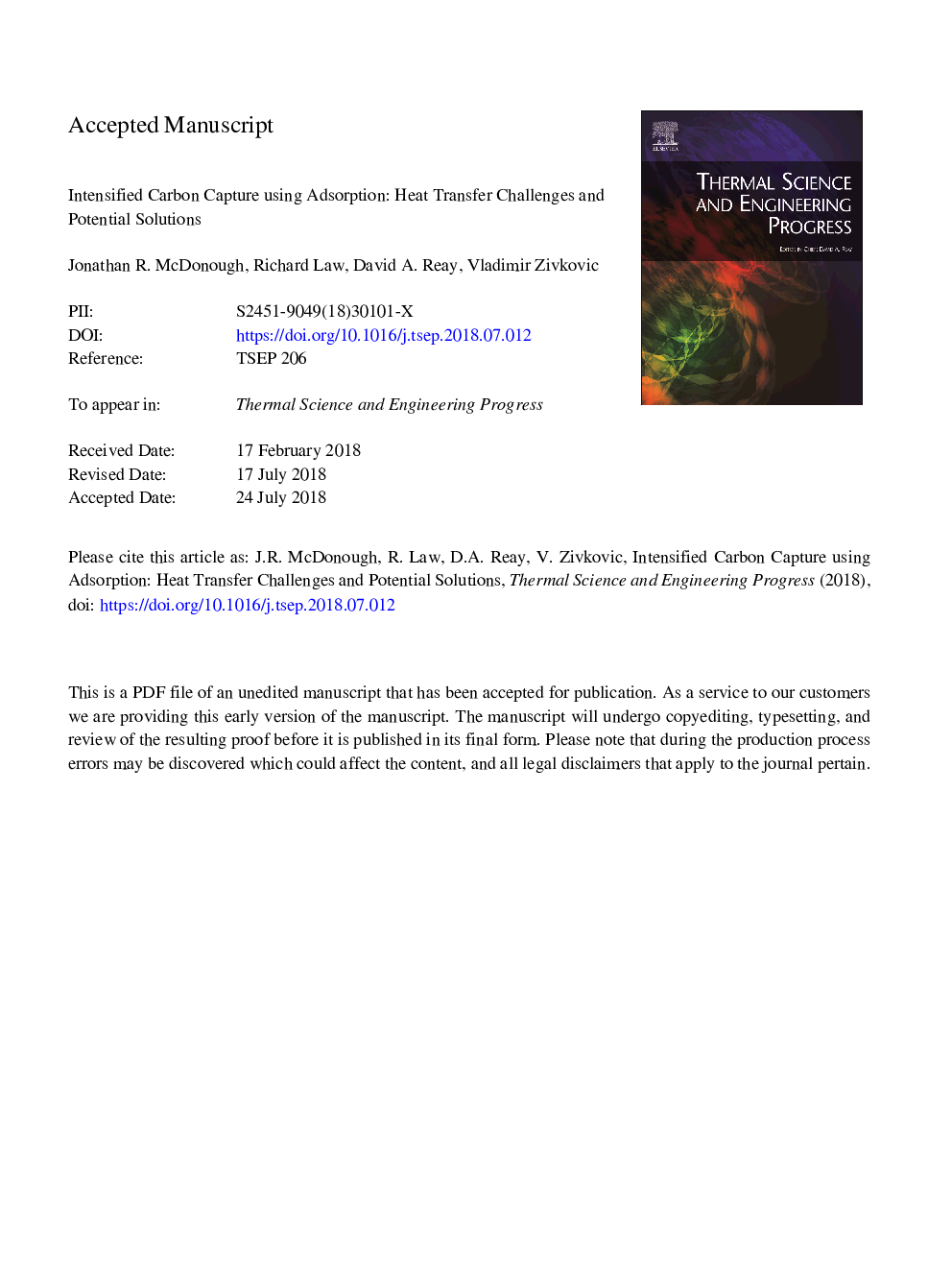| کد مقاله | کد نشریه | سال انتشار | مقاله انگلیسی | نسخه تمام متن |
|---|---|---|---|---|
| 8918631 | 1642855 | 2018 | 35 صفحه PDF | دانلود رایگان |
عنوان انگلیسی مقاله ISI
Intensified carbon capture using adsorption: Heat transfer challenges and potential solutions
ترجمه فارسی عنوان
جذب کربن قوی با استفاده از جذب: چالش انتقال حرارت و راه حل های بالقوه
دانلود مقاله + سفارش ترجمه
دانلود مقاله ISI انگلیسی
رایگان برای ایرانیان
کلمات کلیدی
انتقال گرما، کربن ضبط، جذب، شستشو، تولید افزودنی،
موضوعات مرتبط
مهندسی و علوم پایه
مهندسی انرژی
مهندسی انرژی و فناوری های برق
چکیده انگلیسی
Up to 25% of the total European Union (EU) CO2 emissions that contribute to global warming are from industry, and while improved energy efficiency and process integration continues to play a role in minimizing these, it is carbon capture (CC) that in future will contribute most to mitigation, until nuclear energy and renewable technologies take over from fossil fuels. One of several CC methods is to use gas-solid adsorption, where the CO2 is adsorbed onto a solid. As with the more common absorption process, regeneration is required, and typically a single bed is employed to adsorb CO2 while regeneration and removal of the CO2 takes place in the second bed - carried out by pressure swing adsorption (PSA) or temperature swing adsorption (TSA). Collaborating in an EPSRC-funded project with Heriot-Watt University, where hydrotalcite-based adsorbents are being synthesised, and Sheffield University, where modelling is being undertaken, Newcastle University is examining the intensification of CC using a TSA-based process involving swirling or toroidal fluidized beds. As well as improving adsorption, it is believed that recovered waste heat could be used for desorption using a similar intensified technology. This paper discusses the potential sources of CO2 that are being addressed, and how they will be integrated with the capture and desorption processes where fluidization will be used for the adsorption process. It also describes preliminary work on fluidization of the particles using additive-manufactured miniaturized fluid beds.
ناشر
Database: Elsevier - ScienceDirect (ساینس دایرکت)
Journal: Thermal Science and Engineering Progress - Volume 8, December 2018, Pages 17-30
Journal: Thermal Science and Engineering Progress - Volume 8, December 2018, Pages 17-30
نویسندگان
Jonathan R. McDonough, Richard Law, David A. Reay, Vladimir Zivkovic,
